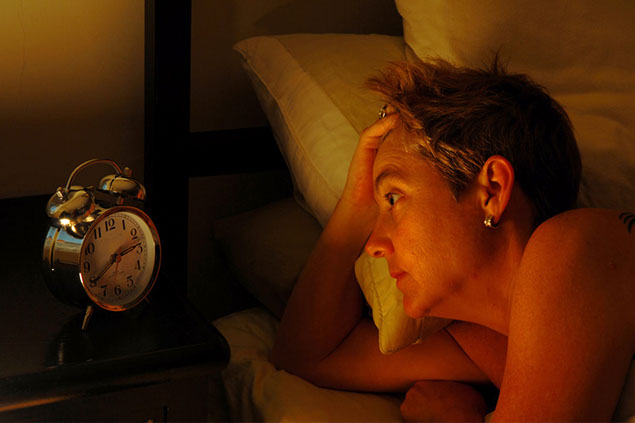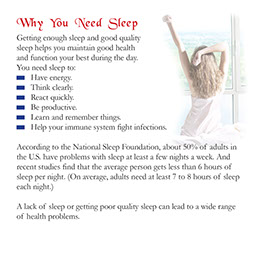CONDITIONS
SYMPTOM CHECKER
Male
Female
Child
Arm, Hand & Shoulder Concerns
Legs & Feet Concerns
Dental & Mouth Concerns
Ear & Nose
Eye Conditions
Head Conditions
Arm, Hand & Shoulder Concerns
Legs & Feet Concerns
Front
Back
Arm, Hand & Shoulder Concerns
Dental & Mouth Concerns
Ear & Nose
Eye Conditions
Head Conditions
Arm, Hand & Shoulder Concerns
Dental & Mouth Concerns
Ear & Nose
Eye Conditions
Head Conditions
Front
Back
Arm, Hand & Shoulder Concerns
Neck Links
Head & Neck Concerns
Arm, Hand & Shoulder Concerns
Neck Links
Head & Neck Concerns
Front
Back
Online Clinic
Wise Healthcare
Insomnia

Print on Demand
Do You Have Insomnia?
Answer these questions:
1. Do you have trouble falling asleep?
2. Do you have problems staying asleep?
3. Do you wake up too early and can’t get back to sleep?
4. Do any of these problems last at least 3 weeks?
If you answered yes to number 4, answer these questions about problems that occur when you are awake:
5. Do you feel like you do not get enough refreshing sleep?
6. Do you yawn and feel tired?
7. Do you lack energy or have fatigue?
8. Do you have a hard time concentrating?
9. Do you feel depressed and/or cranky?
If you answered yes to question number 4 and yes to any question from number 5 through 9, you could have insomnia.
Getting enough sleep and good quality sleep helps you maintain good health and function your best during the day. You need sleep to:
• Have energy.
• Think clearly.
• React quickly.
• Be productive.
• Learn and remember things.
• Help your immune system fight infections.
According to the National Sleep Foundation, about 50% of adults in the U.S. have problems with sleep at least a few nights a week. And recent studies find that the average person gets less than 6 hours of sleep per night. (On average, adults need at least 7 to 8 hours of sleep each night.)
A lack of sleep or getting poor quality sleep can lead to a wide range of health problems.
Health Problems from a Lack of Sleep
• Anxiety, depression, and alcohol abuse.
• Obesity.
• Heart disease.
• High blood pressure.
• Diabetes.
• Stroke.
• Gum disease.
• Accidents and an increased risk for injury and death. About 20% of all serious car crashes are linked to driver sleepiness. Also, workers with severe insomnia make 2½ times more serious work errors than persons who get proper sleep.
Getting enough, quality sleep is as vital to good heath and long life as are healthy eating and regular exercise.
Do’s & Don’ts for Insomnia
Do’s
• Do regular exercise daily. Physical activity releases muscle tension, relieves anger, and improves mood.
• Do mild exercises four or more hours before bedtime.
• Do relaxation exercises as needed throughout the day and before you go to bed.
• Follow a regular daily schedule for meals and snacks.
• Choose larger meals at breakfast and lunch than at dinner. At each meal, have complex carbohydrate foods, such as whole-grain breads and cereals, fruits and vegetables.
• Limit caffeine to 300 milligrams (mgs.) a day. More than 500 to 600 mgs. a day may cause you to be anxious, nervous, and makes it harder to sleep well.
• Cut down on caffeine gradually. Daily usage of caffeine can result in physical dependence. If caffeine is stopped abruptly, withdrawal symptoms can occur. These include headache, feeling down, having a hard time concentrating, and fatigue.
Don’ts
• Don’t do vigorous exercise within six hours of going to bed.
• Don’t have large meals near bedtime. These may keep you awake, especially if you have heartburn or a similar problem.
• Don’t have caffeine for 6 hours before bedtime.
This website is not meant to substitute for expert medical advice or treatment. Follow your doctor’s or health care provider’s advice if it differs from what is given in this guide.
The American Institute for Preventive Medicine (AIPM) is not responsible for the availability or content of external sites, nor does AIPM endorse them. Also, it is the responsibility of the user to examine the copyright and licensing restrictions of external pages and to secure all necessary permission.
The content on this website is proprietary. You may not modify, copy, reproduce, republish, upload, post, transmit, or distribute, in any manner, the material on the website without the written permission of AIPM.
2021 © American Institute for Preventive Medicine - All Rights Reserved. Disclaimer | www.HealthyLife.com
















































